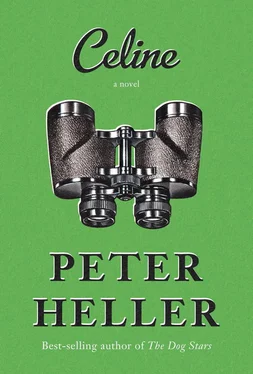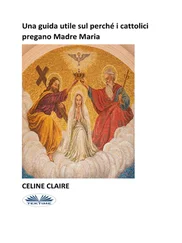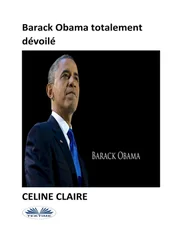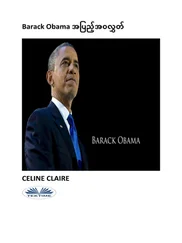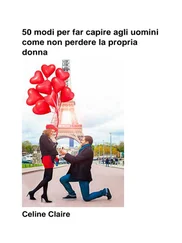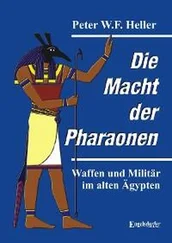“And?”
“And her expression changed gradually as the lawyer unsealed and read the document and she digested the words sole heir and then Gabriela Ashton Lamont. Danette stormed out. Later she locked herself in the apartment and Gabriela heard dishes breaking. It took about a month for the co-op board to transfer ownership to Gabriela, at which point Gabriela evicted her on the spot. She was only twenty, but she knew what needed to be done. The co-op board, none of whom had much stomach for Danette Lamont, had to call in the city marshal to drag her out.” Pete lifted up his tweed cap and rubbed his forehead. The image was sad and amusing at once. It always amazed him that greedy people could throw themselves so headlong into acting against their own long-term self-interest.
“There was an insurance policy, too. That drove her wild. Wilder. One million. All to Gabriela. It seems trite, doesn’t it? Like Dr. Evil putting his pinkie in the corner of his mouth and asking for a million dollars to ransom the world.”
“Trite or not,” Celine said, “it’s a pile of cash for a college student on scholarship. But wait, how long before Lamont was declared dead? It was pretty fast, wasn’t it? I think she told me it was something like two months after his disappearance. That doesn’t seem right. Without a body.”
“Yes.” She’d done it again. Worked out in a flash what had taken him not inconsiderable pondering. “A federal agent in Yellowstone National Park, and then a county judge, signed off. A smear of Lamont’s blood was found on the bark of a nearby fir tree. The prevailing theory was killer bear. And there was this otherwise destitute young woman who stood to inherit. The intensive search lasted about ten days. It probably would never have lasted that long except that it was fueled by media coverage. The story was sexy. Lamont was a handsome and well-known National Geographic photographer who took the photo of the wild horses clashing beneath the towers in Monument Valley. An unexpected long shot from above, the two stallions rearing up and dwarfed by the rock. You’ve seen it.”
Celine nodded.
“Gabriela said there were television vans all over Cooke City. The place only has one paved street and two motels. She said loggers and bearded recluses were renting out rooms to coiffed broadcast reporters in panty hose.” Pa chummed—his trademark utterance, between a chuckle and a hum. “There’s another detail.”
Celine studied her husband, one eyebrow barely deigning to rise. He had done a lot of groundwork on his own in just a couple of days. While she was, admittedly, on her own frightful tear to get ready and out the door. This was not their usual way of doing things, however, and she felt a mixture of hurt, if not betrayal, as well as admiration for his thoroughness. “Yes? Another detail?”
“An insight is perhaps better. Lamont disappeared just outside the boundaries of Yellowstone National Park. Half a mile outside. Had his car been found just south, within the park’s borders, the case, and the search, would have automatically been federal.”
“Ahh.”
“You see? He avoids both the FBI and the prodigious search-and-rescue apparatus of the national park and the federal government.”
“He does?”
“Yes. I mean if this was premeditated, if this wasn’t actually a killer bear attack. Except.”
“What?”
“Gabriela flew out from Sarah Lawrence as soon as she heard from Danette that her father had disappeared. She spoke to her professors and got deferments on the first papers and work groups. It was lucky that she had no labs. She landed in Bozeman, rented a Jeep, and drove down. She said she interviewed everybody, the biologists, the tracker, the cops and the searchers, park officials, even the people who ran the bar that Lamont frequented in Cooke City. She kept meticulous notes and a journal. And she kept running into a pair of officials she knew in her gut were feds and who would not talk to her. She said they avoided her.”
“She brought the notes with her when she came to dinner,” Celine said. “But not the second time she came over. Can you please hand me my phone?”
Pa’s telltale eyebrow lifted and fell, a bit like a Maine coast groundswell. He knew that his wife was constitutionally incapable of staying out of the fray and that she would not be sidelined for another minute.
Gabriela answered on the first ring. “Hello, it’s Celine. I hope I haven’t caught you in the middle of dinner.”
“No, no, we’ve eaten.” That clear voice, like mountain water, Celine thought. A voice to love.
“Can you please FedEx a copy of your file of notes? The one I saw you with the other night?”
“I can’t find it. I… I misplaced it.”
“How? Do you remember? Can you tell me any more about that?”
“No.” Neither woman was in the mood to beat around the bush. Celine knew there was more, but she also sensed that now was not the time.
“I see. Well tell me: You spoke of certain rumors about your father. About his… his, ah, travel. All those places he went back to—Argentina, Peru, Chile. Do you think the rumors had merit?”
“I’m not sure, but—”
“But what?”
Gabriela hesitated. The girl was clearly conflicted. “I mentioned on the dock that there was one thing—”
“Yes, I remember.”
“I told you that after… that I moved back into the larger apartment upstairs.”
“Right.”
“I did it on my Christmas break from school. My junior year at Sarah Lawrence. Not the funnest Christmas—”
“Of course. Very bleak. I can imagine.”
“Well, I was cleaning out the upstairs apartment, trying to purge the residue of Danette before I moved in, and…”
“And?”
“And I lifted out the silverware tray, the one with all the compartments for knives, forks—”
Celine nodded impatiently into her phone. She knew what a silverware tray was.
“I lifted it up and underneath was a stained sheet of thin oilcloth. It was sort of etched with the outline of a rectangle. I peeled up the sheet and underneath was a current U.S. passport. It bore Pop’s picture. But the name was Paul Lemonde Bozuwa.”
Celine felt a rush, almost like the hit from a double espresso. Gabriela said she had put the passport back where she’d found it, she wasn’t sure why.
They drove west up Main Street and halfway through town they saw a sign on the left that said SINKS CANYON—US FOREST SERVICE ACCESS. They turned. Bounced up the washboards for ten minutes and pulled off at a small meadow. When she opened her door the sound of a creek in a rock bed filled the night, and the smell of cold stones and water and sage, and she felt strangely elated.
They woke to rain. It drummed on the camper’s aluminum roof and pattered against the canvas walls of their upstairs bunk. She loved this as much as the presence of the stream. How long had it been? Rain on a tin roof? Except for the small incident in the night, she felt blessedly… something. Happiness was not a word that seemed to apply anymore, when she had lost so many close to her. There was a contentment that felt deeper, that acknowledged and accepted the quieter offerings of small joys—of love and occasional peace in a life that was full of pain.
The summer before last, between two sisters’ funerals, they had gone back to Pete’s family compound on North Haven and stayed in the Doll’s House hard against the little inlet—just a clapboard cabin with odd-size salvaged windows, candles, a lantern, a woodstove—and she had loved it without knowing how much because the whole sojourn was heavy and darkened by grief. She must have loved it. It had rained there, hard, two nights running, and if she could love anything then she loved the feel of Pete warm beside her in the tiny bed, snoring with the peace of an elder who has come home after a long time away, and the sound of the rain sweeping against the mossy shingles. And walking slowly up the grassy track through spruce woods, holding Pete’s hand, walking slowly and stopping to catch her breath—the trail was steep, her emphysema a nuisance—up to the Big House, which was just a clapboard saltbox fitted out with small rooms and bookshelves stuffed with musty first editions. And a view down the clearing to the slate blue bay and an archipelago of little islands.
Читать дальше
